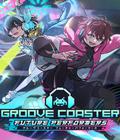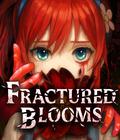
Genre: Edutainment/Puzzle
Publisher: Ubisoft
Developer: Ubisoft Montreal
Release Date: November 6, 2007
 Brain Age became an unexpected hit on the Nintendo DS, making puzzles simultaneously fun and informative as they tested your grey matter across a variety of challenges; it later arrived on the Wii with a title of its own. From action adventures to edutainment, the little white box that could seems determined to provide everything, and now Ubisoft Montreal has jumped onboard with a Wii version of My Word Coach. Hoping to add a few new words to your vocabulary, it's not a game in the strictest sense that players may be used to, but it makes learning new words an interesting experience.
Brain Age became an unexpected hit on the Nintendo DS, making puzzles simultaneously fun and informative as they tested your grey matter across a variety of challenges; it later arrived on the Wii with a title of its own. From action adventures to edutainment, the little white box that could seems determined to provide everything, and now Ubisoft Montreal has jumped onboard with a Wii version of My Word Coach. Hoping to add a few new words to your vocabulary, it's not a game in the strictest sense that players may be used to, but it makes learning new words an interesting experience.
My Word Coach starts you off with a friendly introduction by Dr. Alistair Archibald, a bespectacled 3D caricature of a college professor with a slight case of Christopher Lloyd, who will guide you in using the Wiimote to run through a few puzzles to get a baseline reading of your vocabulary level. I have to admit, my gamer's instinct had to fight the fact that I'm not supposed to win at every puzzle here. This is the title's way of gauging your starting Expression Potential: your ability to express yourself in the English language, or at least know the meaning of words that you normally wouldn't use in day-to-day conversation.
Not that it needs it, but there isn't a lot of graphical horsepower underneath the surface of My Word Coach. The clean aesthetics, charming animations and ambient tunes add to the entertaining way that the game delivers its exercises. Once you've set up your profile, you can choose one of four coaches to give you feedback following every lesson. There's the good doctor, recent graduate Veronica Munroe, public speaking coach Lucius King and Penny, the chipper child prodigy. Each coach is presented in lip-synched 3D, one of the few instances where 3D graphics are used, and has his or her own method of sharing grammar tips, telling you how well you're doing or suggesting what you might want to work on next.
The challenges are spread across several different puzzle exercises, although not all are revealed at the beginning. As you progress in your daily quota, more challenges are unlocked, including cooperative and competitive variants of the games. A quota of correct answers is tracked on a daily basis, and once you've met it, your score is tallied to see how much your Expression Potential has improved. My Word Coach then recommends you take a break until the next day, when you'll start with a new quota.
You can keep practicing your skills with the puzzles, but as far as improving your EP goes, you'll need to wait until the next day for your successes to count toward it again. If you're the sneaky type, you can change the calendar date on your Wii and trick the game into thinking that it's the next day, and changing it back will do the same thing. Again, it isn't so much of a game as it is edutainment, although students who want to challenge themselves might find its scheduled fun to be a little too restrictive.
A few tools are also available to help track your progress, including a graph that shows a very general overview of your performance across the board, how many successful answers you need to unlock a new reward, or if you want to change your coach so that someone else will wish you a good afternoon when you start the game. Different profiles can be set up, and getting around the menu system is as easy as tilting your Wiimote left or right.
The simple interface leaves only the learning curve for the puzzles to worry about. Newly introduced puzzles will run you through a short tutorial, but after that, the game will throw you right into the fire. Fortunately, My Word Coach only counts correct answers, although the score for each challenge may be affected by the number of correct answers or how long you took to get through it.
Each puzzle offers a unique way of learning new words in the guise of a fun exercise, as opposed to rote memorization. Most of the exercises are also timed, which adds to the challenge, although it can sometimes feel a little unfair when the time necessary to complete a puzzle can depend on how well you can wield the Wiimote — or when you're simply waiting for the right letters to show up, as is the case with one of the exercises.
In, "Missing Letter," you'll use the Wiimote to spray paint the missing letter of a word onscreen. This can take a little practice in getting used to the spraying, and although the letter recognition isn't bad, it's not perfect, either. Badly flubbed chicken scratch has a chance of being seen as the letter you wanted it to be, but it also has a chance of being seen as something else, such as mistaking a badly sprayed A for an H. You have a few chances to get it right before the game decides you've had enough. The manual comes with a letter recognition guide to show you how best to paint each letter, but you don't have to use it as long as your letters are reasonably close to they should be. You may have to adjust your spraying patterns to match what the game expects; I had to take extra caution in spraying my Es because the title would often misinterpret them as Fs.
"Split Decision" is set in a closet with coat hangers; you're given a word and must decide which of two definitions is correct by twisting the Wiimote left or right, which moves hangers holding each definition into view. "Word Cereal" is just what it sounds like, giving you a bowl of milk with letters floating in it and the definition of a word that you'll need to spell out as you use the Wiimote to pick up letters and place them on the edge. Letters will slowly sink, but you can always swirl the milk to get them back. "Safecracker" pits you against the Wii as you dial the correct letters to spell out the word matching the definition onscreen.
"Block Letters" is kind of like Scrabble and Tetris mashed together. You're given a list of words that you need to spell out from the pile of letters that stacks as new letters drop down from the top. If too many letters pile up, the exercise is over. To keep that from happening, you can spell out words to destroy the letters that form them, and if it gets a little too crowded, you can use a small number of bombs to blow up unwanted letters. You can also drop in more letters if you're hurting for that last "Y," and your stock of letter busters replenishes over time.
There are also recreational games that you can play for fun, such as a competition mode acting as My Word Coach's version of a spelling bee, which asks the player to spell out the spoken word by spraying the letters on the screen, or Cube Survival, which is like "Block Letters" spread over several rounds to see how far you can go. Multiplayer is also part of the package, allowing you to challenge anywhere from two to four players across the exercises you've unlocked. There's no online functionality, though, so you have to keep the party at your house for the time being.
While the title gives you a large collection of words to play with, it can sometimes feel as if it throws you a curveball. Words that you've missed in one puzzle might show up again in another one to help reinforce it for you, but many times, you'll find yourself spelling out words that you take for granted, only to come up against something that you might never hear anyone say except in specific situations. After spelling out a word like "multitasking," you might run into "kroner" in the same game. Since kroner are the monetary units in Denmark and Norway, I'm not exactly sure how relevant the word would be, unless I happen to be visiting those countries.
My Word Coach is not without some other faults that can make it a little difficult to justify paying full price for what is essentially a DS title. For one thing, it locks up quite a bit of content to purposely make the core experience feel crippled. Using the Nintendo DS with the "Missing Letter" puzzle game from the outset would have been better than forcing players to unlock this feature as a "reward." The same goes for the competition mode, which would have been a great option to have at the beginning. It would've also been nice to have a larger selection of coaches to choose from or hear from them more often, and some of what they say can also get a little repetitive. In one session, I heard the same saying about Mark Twain about three times.
Many of the exercises can start to feel stale over time, considering how few of them there are, but additional difficulty levels can make things a bit more interesting — unless you haven't unlocked them yet. They're fun in small doses, which is probably the reason the title asks you to stop after you've met your EP quota for the day, but it still doesn't hide the fact that there are only so many challenges here. The party options make it more fun as a game that you might want to share with your friends and family, and it would've been nice to see an option tailored for younger vocabularies. If you know someone training for a spelling bee, the huge vocabulary and the activities here might be a welcome supplement to the diet of words, but I wouldn't recommend throwing a grade schooler into this one alone.
Altogether, My Word Coach is an entertaining collection of puzzles that can start out as a fun, charming title that makes reading through a dictionary as fun as it can be. While it includes a large vocabulary of words to draw from, the limited number of challenges and extras can feel a bit light for the AAA pricing, and the game quickly loses much of its staying power. It's genuinely entertaining in small chunks, but there is still a lot to be said for spending time with a good book instead, or by keeping a thesaurus or a copy of the Reader's Digest handy when you have the need to feel egregiously verbose.
Score: 7.0/10















